We thought of life by analogy with a journey, with a pilgrimage, which had a serious purpose at the end, and the thing was to get to that end—success, or whatever it is, or maybe heaven—after you’re dead. But we missed the point the whole way along. It was a musical thing and you were supposed to sing, or to dance, while the music was being played.
Alan Watts
Alan Watts had a lot to say, having published over 160 books, not to mention countless lectures, essays and other recordings. It took a lifetime for him to learn these things, and it will take us regular folk a few lifetimes to truly understand them. We’re here to help with this series on Alan Watt’s great teachings.
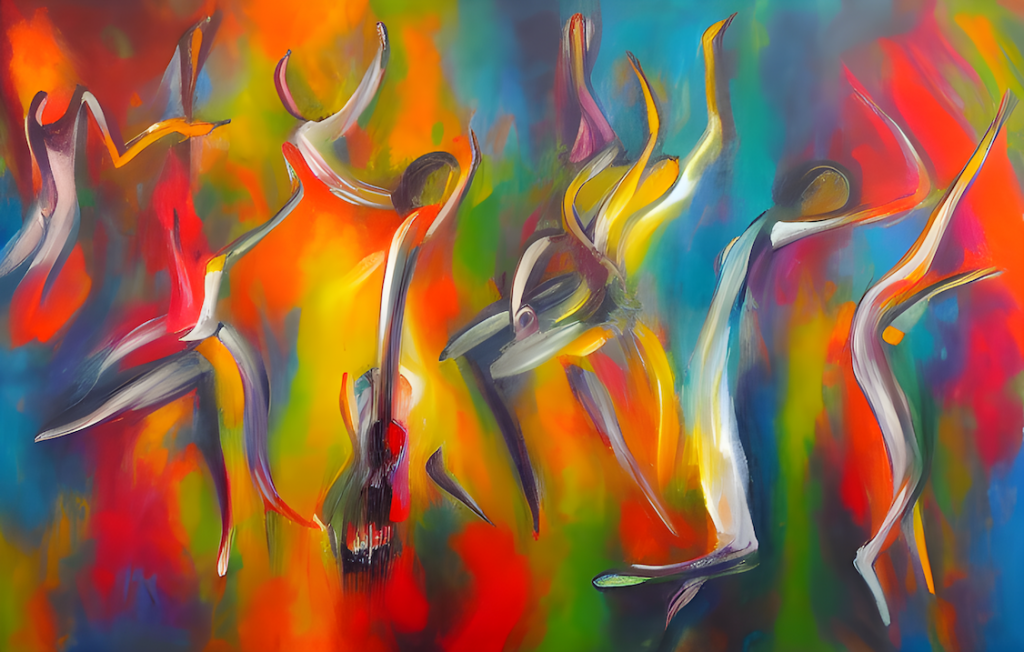
Alan watts and his lessons
This is part three of our series on Alan Watt’s great teachings. This is our effort to distill some of the most important lessons that Alan had for us. These are the lessons he repeats over and over, in lecture after lecture, until it finally sinks in. We’re not trying to rehash his lectures, but rather modernize the concepts for today’s audience.
If you missed the first two posts, we’d recommend scanning through them before you dig into this. This lesson on mindfulness is both the simplest to explain and also the hardest to practice, especially in our modern world. Having the background of the other two lessons will help you work this into your daily life.
- We are all one organism, Alan Watts was also a monist
- Life is a game, stop taking things so seriously
- You have already arrived, this is what you are reading right now

Dance while the music was being played
If you skipped reading the quote at the start of this article, go back and read it now. This is Alan’s most famous quote, or at least in the top 10. Likely you’ve seen it written that way before, starting with “We thought of life…”, everyone hides the darker half of this quote when they tweet it out as inspiration. Let’s put it back into proper context so you can experience his entire thought:
Look at the people who live to retire and put those savings away. And then, when they’re 65, they don’t have any energy left, they’re more or less impotent, and they go and rot in an old people’s—“Senior Citizens”—community. Because we’ve simply cheated ourselves the whole way down the line. We thought of life by analogy with a journey…
Alan Watts, Coincidence of Opposites:You Play the Piano, transcripts published 1995 as The Tao of Philosophy
Well this got much darker didn’t it? Alan was not joking around with this lesson. While the other two lessons can help you to live a happier life, or at least better cope with the one you have; This lesson is different, this lesson is existential. When Alan spoke on this topic, which he did often, it wasn’t with his typical jovial style of speaking. No, when Alan teaches this it is more serious, and for good reason.
People who fail to learn this lesson end up old and sad and then die, that’s the simple truth of the matter. To people like us, and Alan, this is the most horrifying thought. The idea that most of the world is just rushing towards the grave, as quickly and destructively as they possibly can. If you understand the concept of reincarnation under any form you know that these people will just do this again and again. It’s a truly horrifying cycle if you really think about it.
Like Alan we yearn to teach this lesson to everyone, but we understand it is the most difficult one. We’re going to attempt to teach it from three perspectives: Society, Psychedelics and Practicality. Hopefully one of these perspectives rings true with you.
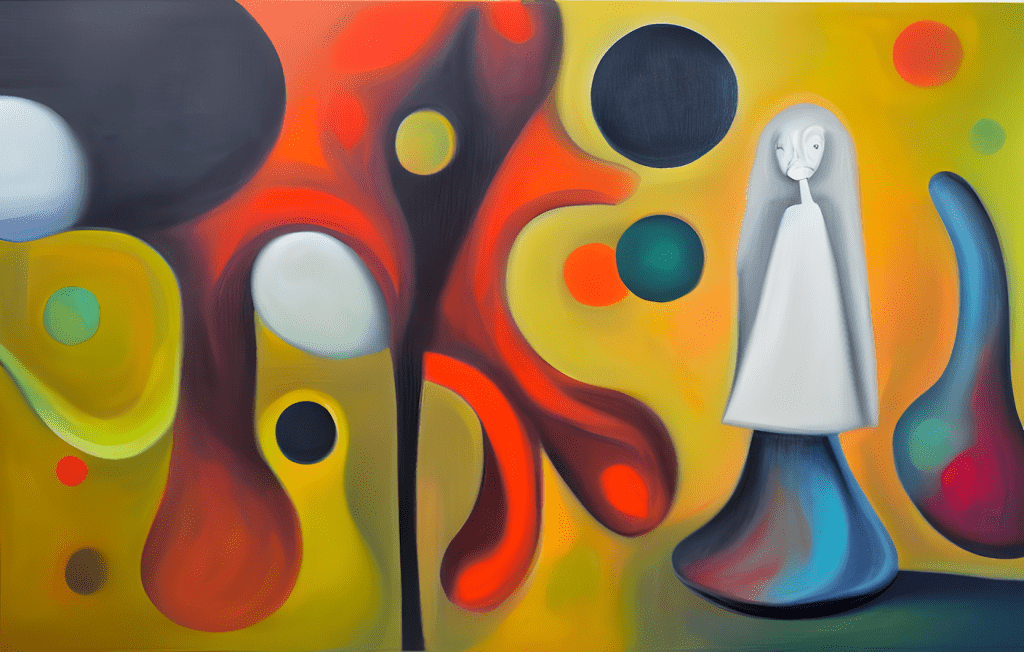
we live in a society
One way to think about this lesson, which is really the ancient Buddhist lesson of “Mindfulness“, is from a societal perspective. Despite our best intentions, all of us are molded by the societies we grow up in. They place expectations on us, in the form of goal posts. “You must get good grades of you won’t get into college”, then “You must graduate college or you won’t get a good job”, and on and on it goes until we finally give up and die.
But death is not the end, you will be reborn and repeat it over and over. That’s hard to believe but just go ahead and try to stop existing, we’ll wait here and see you on the turnaround.
Samsara is a better word to describe this concept of never ending goal posts. Samsara is a Sanskrit word that literally means “world”, however in Buddhist traditions the word is used to mean the unending cycle of birth and rebirth. Alan Watts often compares the meaning of this word to the connotation of the phrase “Rat Race” in western culture.
When we decided to stop being lonely gods and move our egos into Samsara we created the illusion of separateness. You can read more about that in Alan’s first lesson, we are all one organism. This separateness is a key aspect of how the rat race works. We want to fit in with the society we find ourselves in, few desire to become outcasts right? We want the “others” to like us.
But fitting in means meeting these expectations, go to college, get a job, save for retirement, die in an assisted living home. This life path is common across most of the world, but it is not natural. This is a creation of our society. Just as tribes at the beginning of humanity would choose warriors, leaders and gatherers — we need a way to figure out each person’s role to play.
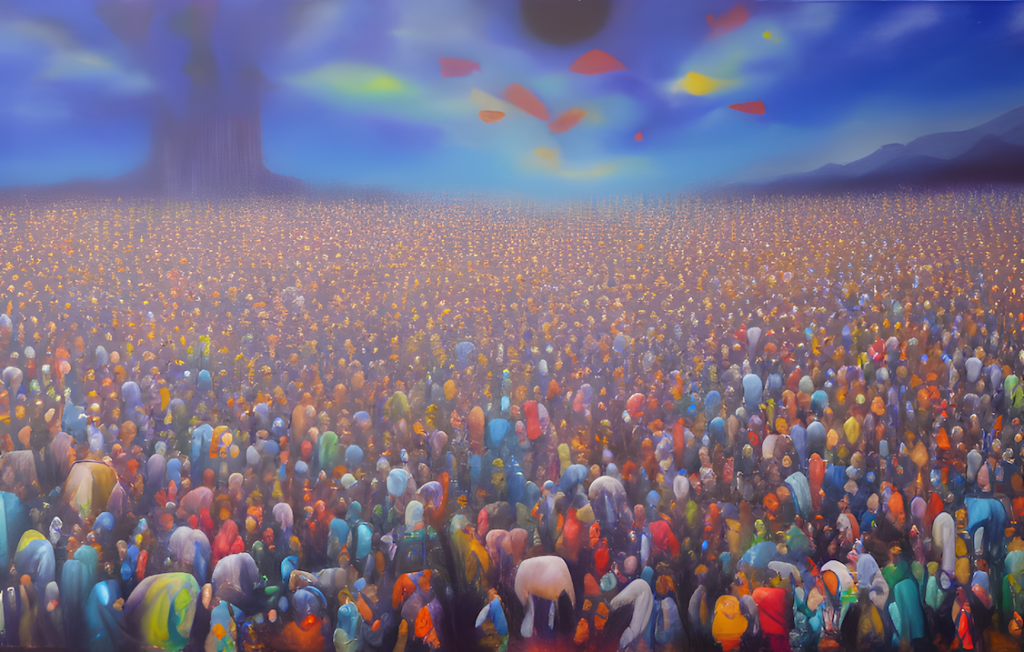
Another way to live
As our world population grows finding that role for each person becomes more and more difficult. This is a primary source of the strife and conflict we see today, too many people and not enough useful roles to play.
Is there another way? Maybe it isn’t societies job to find you a role, that’s a false narrative — you shouldn’t have a goal like that in the first place. Life is a game to be played, not a job to do, not work. You don’t need a role, just be.
This constant focus on future goals corrupts the mind. We stop thinking about the things in front of us in pursuit of those goals. We stay late into the night working for a job that doesn’t care about us, this hurts the people we leave back at home who do care about us.
Slowing down and thinking about your actions is the answer. It feels wrong in our society to do so, but try it. Instead of rushing to work, take a different route, stop at a new coffee shop and have a conversation with one of the patrons. You might be late, your boss might get angry, those things may happen in the future – or they may not. Right now though you’re getting a great coffee and talking to a new person.
These experiences are the real stuff of life. This is what we are supposed to be doing, what the universe wants us to do. Find and try new things, always something new and exciting that is the secret to living a more mindful and happier life. You cannot fall into auto-pilot patterns if you aren’t repeating patterns in the first place.
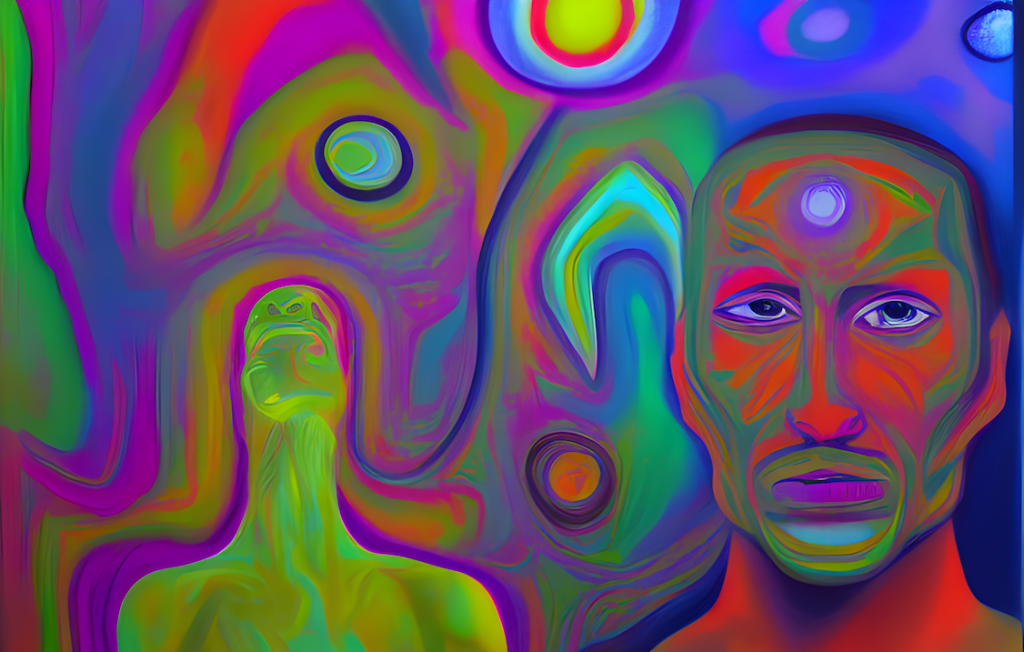
are psychedelics the answer?
The world today is well into the second wave psychedelic renaissance. Companies all over the world are offering Ketamine treatments for depression, or other mental ailments. Our all-star athletes are speaking openly about their Ayahuasca experiences. Many countries and states are seriously considering or already have legalized psychedelic medicines. The days of DEA scare mongering are rapidly falling behind us.
We’ve taken many psychedelics over the years, of course the obvious ones like LSD, Psilocibin and high dose THC. We’ve also tried more exotic creations like 2C-B, 2C-I, we’ve even had a terrifying encounter with the ever dangerous 5-MeO-AMT which we will write about maybe on Halloween. All these experiences have one thing in common: Forced Mindfulness.
You may not have thought of it that way if you’ve had an experience like that yourself. Looking back though, consider all the details of life that you noticed while under the influence – do you usually notice things like that? The magical patterns of tree bark, staring at a bathroom rug for hours? Likely not, this awareness of all the intricacies of the world is exactly what we call mindfulness.
You don’t need psychedelics to experience this, but without them it can be quite difficult to let go of the future and live in the present. Monks spend day after day meditating to get into this mindset and stay in it. That amount of effort, a life times worth, is too much to ask of somebody who can’t see the benefit. Psychedelics can be a way to remind yourself why you are doing this work, to get a glimpse of the end state you are looking for.
Discipline is a word Alan often uses when he speaks about psychedelics. He thought of himself as a bridge between the youth culture of his time, the hippies protesting against the Vietnam war – and the adults who were trying to make them fall in line. Alan was the same age as those adults, and fully capable of speaking to them, but he retained the mindset of the hippie youths.
When he uses this word he always explains what he means. He means you need to approach these molecules with an intention. If you take them just to have a good time at random, without discipline, you will often not get the experience you were looking for. These are teaching molecules and need to be respected as such. This is what Alan meant.
So go ahead and use them, we certainly do, but use them with intention. Always have the goal of improving your mindset, moving one step closer to not needing them anymore and simply living that way all the time.
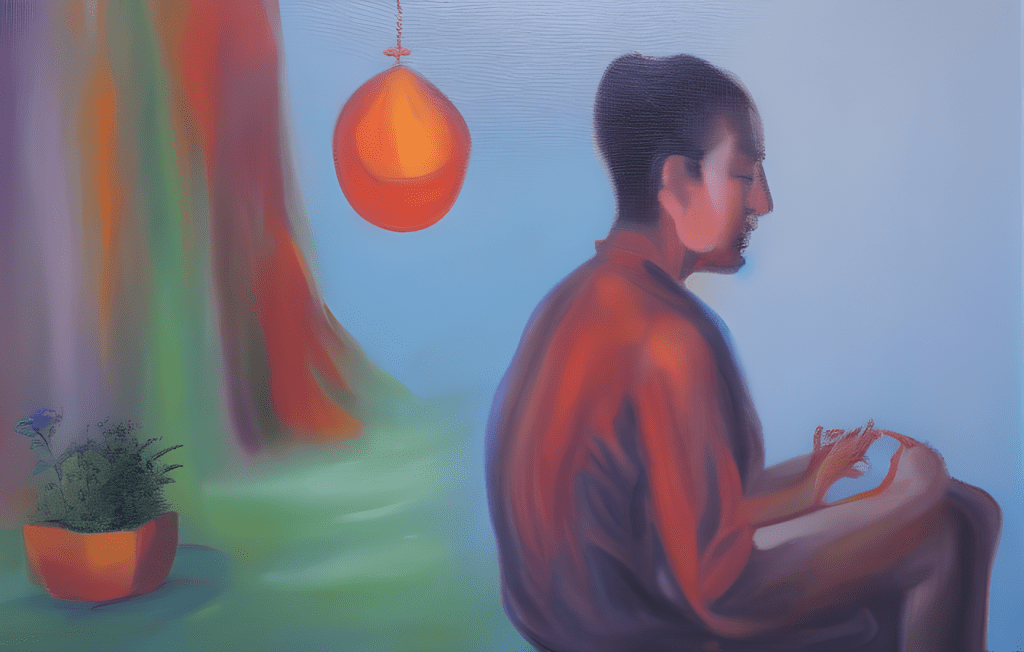
Practical mindfulness, the highway
We’re not here to drop some high-brow philosophical bomb on you and then leave. The entire purpose of these articles is to show you how to use these teachings in a practical way, right now. Once you see how effective they are, we know that you will keep growing and learning on this path.
Highway driving is incredibly stressful, we all end up having to do it but nobody enjoys it. It seems like all the other cars are trying to kill you or kill themselves, total chaos. Why did you reduce the other entities to cars? Inanimate machines do not have feelings or desires do they? Surely the cars aren’t doing this to you.
No, it is the the people in the cars who are doing these things to you. Each car on that highway has a person, or maybe multiple people. Each of those people has a rich and storied life just like you do. They have hopes and dreams, maybe families. It is very difficult for us to let go of the reductive way we approach the world and instead approach it as it truly is, with all that complexity.
This is one way we work towards mindfulness in our own lives. This is like an exercise, like lifting weights to build muscle. Sit in a comfortable chair and picture a highway in your mind, thousands of cars rushing about and switching lanes at random. Now try to focus on one of them. Why is it there? Who is the driver? What are their goals, why did the bother with this chaos?
Once you’ve mastered one, move on and build up another and another until all of the multitude of cars are full of complete human egos — just like yours. Retain a bit of this feeling the next time you get behind the wheel and maybe it will be easier to allow that car to merge into your lane, maybe it won’t seem like a personal attack anymore.
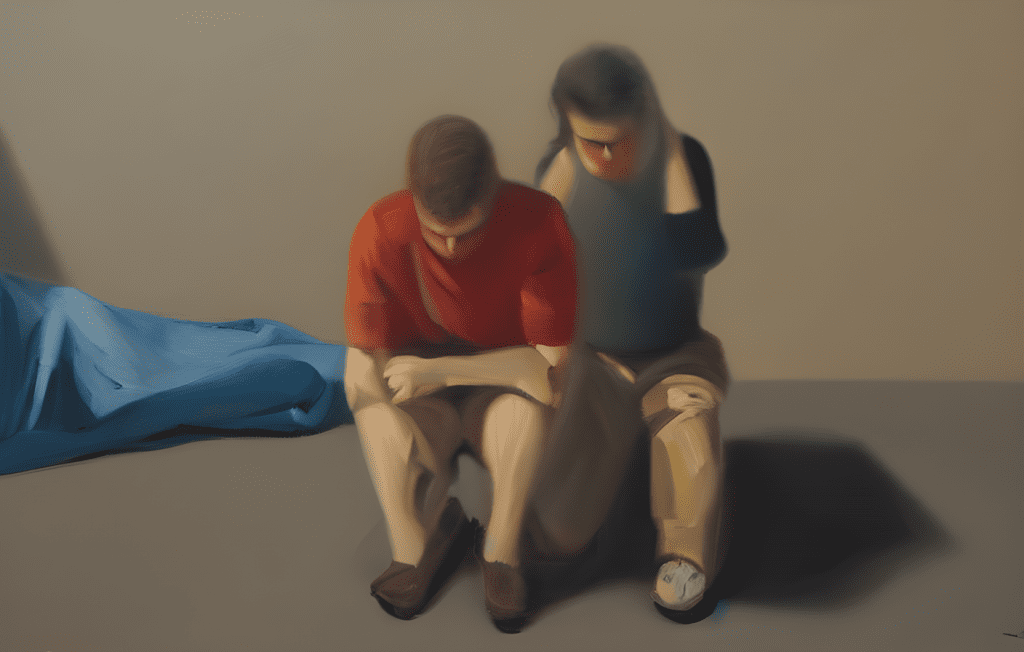
Practical mindfulness, the Clock
It goes further than this though. Think about the goals you have coming up in the next year, maybe you have a vacation planned around some holiday weekend in a few months. You are really looking forward to this vacation, wouldn’t it be nice to fast forward through these boring weeks so you can get to the fun part?
This is wrong thinking, you likely often notice yourself feeling bored either in life generally or in a specific situation like a meeting or a family dinner you don’t care much about. When you notice this feeling, boredom, acknowledge it, accept it but don’t dwell here. This is an opportunity to practice mindfulness.
Find something around you, no matter what the situation is, find something, maybe a clock on the wall. Focus on this item and notice every detail. Notice how the hands of the clock move, does the second hand jump from second to second – or smoothly rotate? Think about the mechanism that produces this motion, think about what this motion even means, time passing.
Now think even further, consider where the clock was made and who made it. Was it hand made in a small shop, or mass produced in a factory? What are the lives of those workers like, what kind of food do they like to eat, what type of house do they live in?
Instead of being bored, see the world as it really is, see every detail or make up the ones you can’t see. This exercise is another practical way to build your mindfulness muscle for use in everyday life.
Conclusions
We’ve crossed 4000 words again so it is time to draw some conclusions. While there is so much more to say on this topic, we will save it for another day. Mindfulness, living in the present, “Dance while the music was being played” — this is the third great teaching from Alan Watts. Like the others he didn’t invent these concepts, but he was the one who delivered them to the west in a way we can all understand.
Do better
With all three teachings complete we can start to see what Alan’s message for the world really was. Do better. There is wonder and beauty around us all the time and we ignore it or worse, hate it, destroy it. We hurt each other to get ahead or get what we want. We build societies that cannot support the number of people living in them.
Ancient peoples from 6000 years ago knew these lessons by heart and they wrote them down and those traditions continue in an unbroken line in certain parts of the world. Our western societies never had these until Alan came along and gave them to us.
“You have already arrived” means this moment, right now, this is the most important moment — not some imagined future you won’t even care about when you get to it. Live here and now with the people who are here, now.
Hopefully this series of articles helps you to understand how we might use the lessons to build a better world, a more kind Samsara. If we’re all stuck here forever, we might as well try and enjoy it.

Alan Watts has clearly made an impression on us, we hope that you also find his ideas intriguing. We’d be remiss if we didn’t point you back to the source material. This post incorporates ideas from many of Alan’s lectures, but the quote at the top is from Coincidence of Opposites, a part of Tao of Philosophy lecture series.
You can purchase your own copy of this audio here. We know these lectures are freely available all over the internet, but buying them from his foundation is the best way to support his legacy and ensure these teachings do not become lost to the western world again.

Leave a Reply